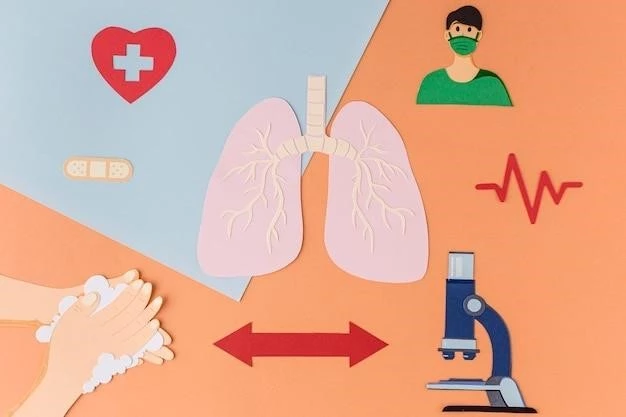Disease Management ⏤ Growth Retardation, Hydrocephaly, and Lung Hypoplasia
For individuals facing stunted growth, cranial enlargement, and underdeveloped lungs, understanding the disease progression is crucial. Addressing developmental delays, reduced lung size, and poor lung development requires a comprehensive approach. Seek medical guidance to diagnose and explore treatment options for managing this complex medical condition.

Introduction
Welcome to an insightful guide on managing the challenges of growth retardation, hydrocephaly, and lung hypoplasia. These conditions can impact individuals with various symptoms such as stunted growth, cranial enlargement, underdeveloped lungs, and more. Understanding the disease progression is essential for effective management. This article aims to provide guidance on addressing developmental delays, reduced lung size, poor lung development, and other aspects of these complex medical conditions. By exploring diagnosis and treatment options, individuals and caregivers can make informed decisions for long-term care. Let’s delve into the intricacies of these conditions and learn about coping strategies, emotional support, as well as the latest research and innovation in disease management.
Understanding Growth Retardation
Growth retardation is a medical condition characterized by the inadequate growth of the body, often resulting in individuals being significantly shorter than their peers. This condition can be caused by various factors, including genetic issues, hormonal imbalances, chronic illnesses, or nutritional deficiencies. Monitoring growth patterns, identifying underlying causes, and seeking medical evaluation are crucial steps in managing growth retardation. Early intervention and treatment can help mitigate the impact of stunted growth on physical and emotional well-being. Consult healthcare professionals for personalized guidance on addressing growth retardation and promoting healthy development.
Managing Hydrocephaly
Hydrocephaly, also known as water on the brain, is a condition characterized by the accumulation of excess cerebrospinal fluid within the brain’s ventricles, leading to cranial enlargement. This can result in symptoms such as developmental delays, brain swelling, and neurological issues. Managing hydrocephaly involves various approaches, including surgical interventions like shunt placement to redirect fluid flow or endoscopic third ventriculostomy. Regular monitoring, early detection of complications, and adherence to treatment plans are essential for optimal management. Consult with healthcare providers specializing in neurology and pediatric care to develop a comprehensive care strategy tailored to the specific needs of individuals with hydrocephaly.
Addressing Lung Hypoplasia
Lung hypoplasia is a condition characterized by underdeveloped or incompletely formed lungs, leading to reduced lung size and poor lung function. This can result in respiratory difficulties, especially in infants and children. Addressing lung hypoplasia requires a multidisciplinary approach, including neonatologists, pediatric pulmonologists, and respiratory therapists. Treatment options may include oxygen therapy, ventilator support, and medications to support lung development. Close monitoring of lung function, pulmonary health, and growth is vital in managing lung hypoplasia. Seek expert medical advice to create a personalized treatment plan that addresses the specific respiratory needs of individuals affected by this condition.
Disease Progression
Understanding the disease progression of growth retardation, hydrocephaly, and lung hypoplasia is crucial for effective management. These conditions can evolve over time, impacting various aspects of physical and neurological health. In growth retardation, ongoing monitoring of growth patterns and dietary interventions may slow progression. Hydrocephaly can lead to brain swelling and neurological complications if left untreated. Lung hypoplasia may worsen without appropriate interventions, affecting respiratory function. Regular medical assessments, diagnostic tests, and collaboration with healthcare professionals are essential to track and address the progression of these complex conditions. Stay informed about potential complications and treatment advancements to support optimal disease management.
Developmental Delays and Challenges
Individuals affected by growth retardation, hydrocephaly, and lung hypoplasia may experience developmental delays and challenges that require specialized care. These delays can impact physical growth, cognitive development, and motor skills. Addressing developmental challenges involves early intervention programs, educational support, and therapeutic interventions tailored to individual needs. Caregivers and healthcare providers play a crucial role in identifying and addressing developmental delays promptly. By creating a supportive environment, accessing appropriate resources, and fostering communication between healthcare professionals and caregivers, individuals can navigate the challenges of developmental delays associated with these medical conditions.
Brain Swelling in Hydrocephaly
In hydrocephaly, brain swelling occurs due to the accumulation of excess cerebrospinal fluid, leading to increased pressure within the skull. This swelling can cause symptoms such as headaches, nausea, and vision problems. Managing brain swelling in hydrocephaly requires diligent monitoring and timely interventions to prevent neurological complications. Treatment options may include surgical procedures to drain the excess fluid and relieve pressure on the brain. It is essential to collaborate closely with neurosurgeons and neurologists to create a comprehensive care plan focused on reducing brain swelling, preserving neurological function, and improving the quality of life for individuals affected by hydrocephaly.
Impact on Lung Function
Individuals with lung hypoplasia experience a significant impact on lung function due to underdeveloped or incompletely formed lungs. This condition can lead to respiratory difficulties, reduced oxygen intake, and compromised lung capacity. Addressing the impact on lung function requires a comprehensive approach that may include respiratory therapies, pulmonary rehabilitation, and lifestyle modifications to support respiratory health. Collaborate with pulmonologists and respiratory therapists to develop a personalized treatment plan that focuses on improving lung function, enhancing oxygenation, and managing respiratory symptoms effectively. Regular lung function assessments and monitoring are vital to track progress and optimize lung health for individuals with lung hypoplasia.
Diagnosis and Treatment Options
Diagnosing and treating growth retardation, hydrocephaly, and lung hypoplasia requires a comprehensive approach involving medical evaluations, diagnostic tests, and multidisciplinary collaboration. Diagnosis involves assessing growth parameters, conducting imaging studies, and monitoring developmental milestones to identify underlying conditions. Treatment options vary based on the specific needs of each individual and may include nutritional interventions, surgical procedures, and therapeutic interventions tailored to address symptoms and complications. Seek guidance from healthcare professionals specializing in endocrinology, neurology, pulmonology, and pediatric care to explore accurate diagnosis and personalized treatment plans that aim to optimize outcomes and quality of life for individuals affected by these complex medical conditions.
Long-Term Management and Care
Long-term management and care for individuals with growth retardation, hydrocephaly, and lung hypoplasia require ongoing support and monitoring to address evolving needs and challenges. Establishing a comprehensive care team consisting of healthcare professionals, therapists, educators, and caregivers is essential for coordinating holistic care. Emphasize regular medical follow-ups, therapy sessions, and educational interventions to support physical, cognitive, and emotional development. Develop individualized care plans that account for long-term goals, treatment adjustments, and adaptations based on disease progression. Encourage open communication, self-care practices, and access to community resources to promote resilience and quality of life for individuals managing these complex medical conditions.
Coping Strategies and Emotional Support
Coping with the challenges of growth retardation, hydrocephaly, and lung hypoplasia can place emotional strain on individuals and their caregivers. Implementing coping strategies and seeking emotional support are vital elements in managing the psychological impact of these medical conditions. Encourage open communication, education about the diseases, and participation in support groups to foster understanding and resilience. Practice self-care, relaxation techniques, and stress management to maintain emotional well-being. Engage in activities that promote positivity, social connections, and a sense of community. Prioritize mental health alongside physical health, and remember that seeking help from counselors, therapists, or mental health professionals is a sign of strength in navigating the emotional aspects of coping with these complex conditions.
Research and Innovation in Disease Management
Research and innovation play a crucial role in advancing the understanding and management of growth retardation, hydrocephaly, and lung hypoplasia. Ongoing research efforts drive the development of new diagnostic tools, treatment approaches, and therapeutic interventions to enhance patient outcomes. Stay informed about the latest advancements in medical technology, clinical trials, and scientific discoveries related to these conditions. Consider participating in research studies or connecting with medical institutions at the forefront of disease management innovation. By engaging with research initiatives and supporting advancements in healthcare, you can contribute to shaping the future of treatment options and improving the quality of life for individuals facing the complexities of these medical conditions.
Conclusion
In conclusion, managing the complexities of growth retardation, hydrocephaly, and lung hypoplasia requires a comprehensive and multidisciplinary approach. By understanding the disease progression, addressing developmental delays, and exploring treatment options, individuals can navigate these challenges with guidance from healthcare professionals. Long-term management, coping strategies, and emotional support are essential components of holistic care. Stay proactive in seeking medical advice, advocating for personalized treatment plans, and staying informed about research and innovation in disease management. Remember that resilience, support, and education are key factors in enhancing the well-being and quality of life of individuals affected by these medical conditions.
